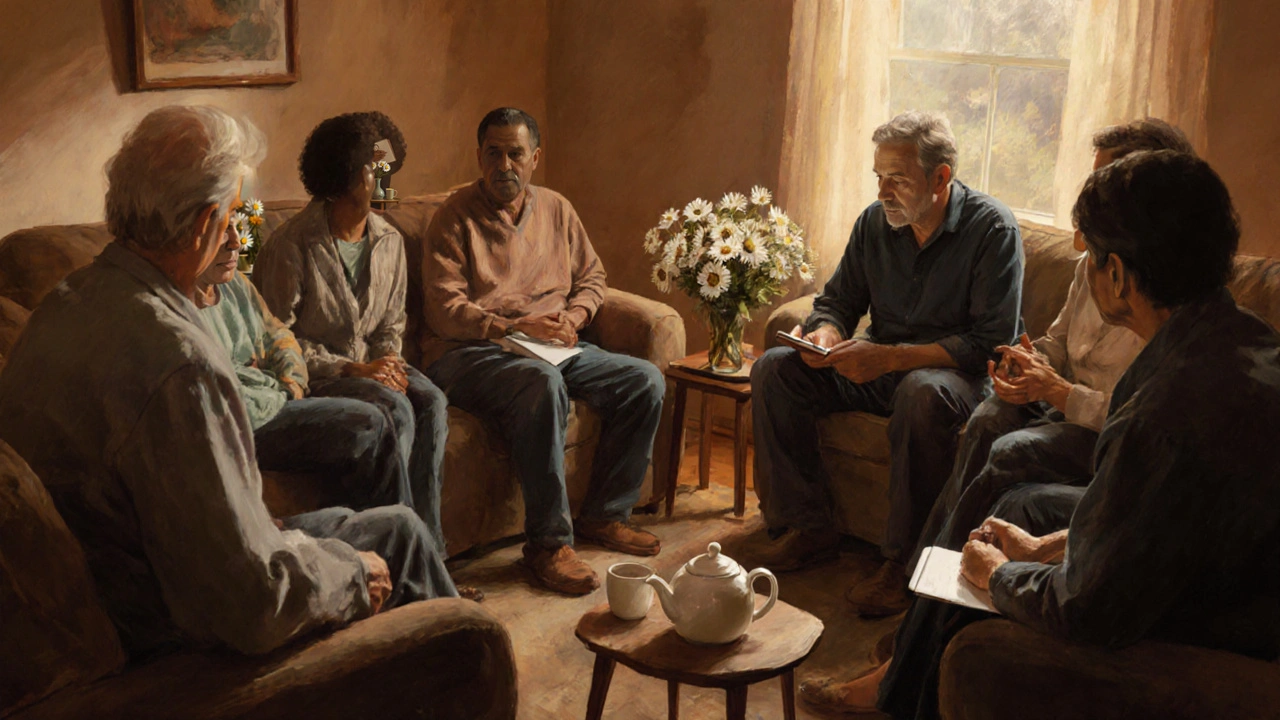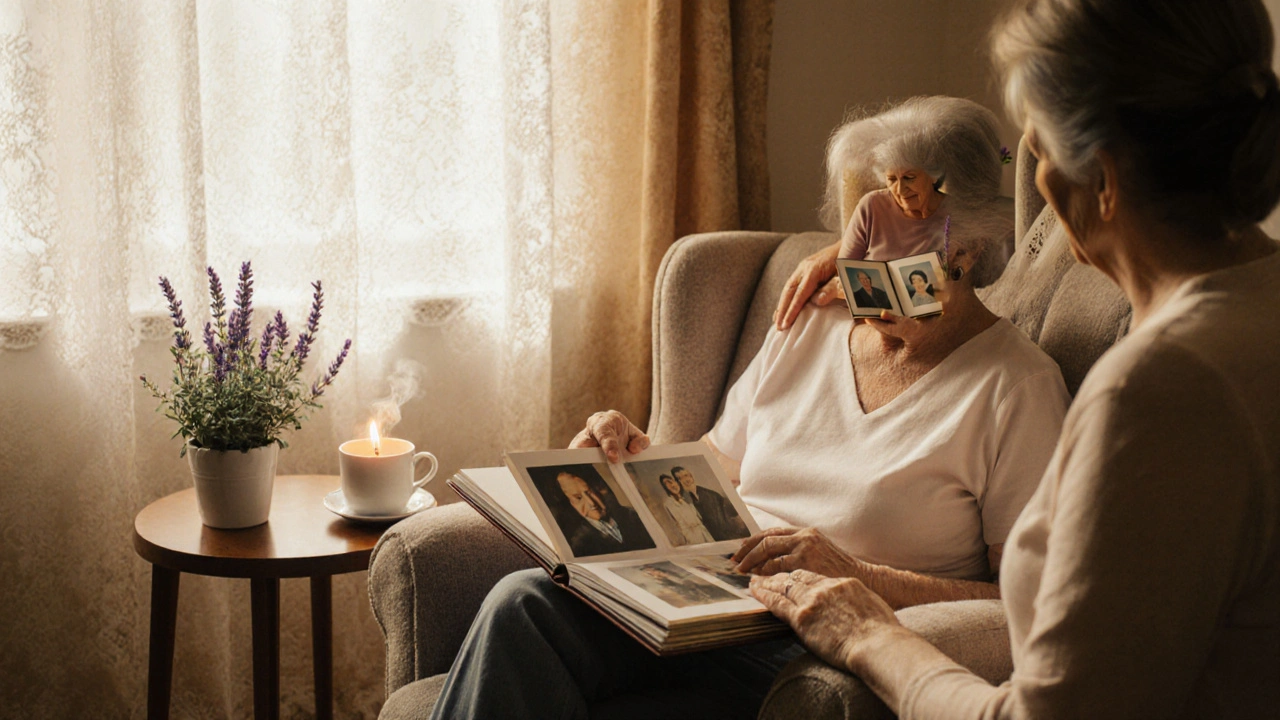Blood Cancer Bereavement is a specific form of grief experienced after the death of a person diagnosed with a blood‑cancer disease such as leukemia or lymphoma, characterised by a blend of medical‑related shock, uncertainty about treatment outcomes, and intense emotional loss.
Understanding Blood Cancer
Blood cancer is a group of malignancies that start in the bone marrow or blood‑forming tissues, affecting the production and function of blood cells. The two most common types are Leukemia, a cancer of the white blood cells, and Lymphoma, which originates in the lymphatic system.
Patients often face aggressive treatment cycles, frequent hospital visits, and unpredictable disease trajectories. These medical realities shape the grieving process for families, who must navigate both the physical toll of treatment and the emotional weight of potential loss.
Grief and Bereavement Basics
Grief is the natural response to loss, encompassing emotional, cognitive, physical, and behavioural reactions. Bereavement refers to the period of adjustment after the death of a loved one. While grief is universal, bereavement varies widely based on cultural norms, personal coping styles, and the circumstances surrounding the death.
When the loss is tied to blood cancer, the bereavement experience often includes additional layers: survivor guilt over treatment decisions, lingering uncertainty because the disease can progress quickly, and the need to interpret complex medical information.
Why Blood Cancer Loss Feels Different
- Medical uncertainty: Families may have lived through weeks of ambiguous test results, creating a prolonged state of anticipatory grief.
- Rapid disease progression: Certain leukemias can deteriorate within days, leaving little time for traditional mourning rituals.
- Intensive caregiving: Hospital stays, blood transfusions, and managing side‑effects can exhaust caregivers, compounding emotional fatigue.
These factors mean that conventional grief‑support approaches may need tweaking to address the unique stressors of blood‑cancer bereavement.
Effective Coping Strategies
Coping strategies are deliberate actions or mental techniques used to manage stress and emotional pain. Below are evidence‑based tactics that align with the realities of blood‑cancer loss.
- Validate the medical timeline. Write down key treatment dates, test results, and doctor communications. Seeing the chronology helps transform chaotic memories into a coherent story.
- Engage in narrative therapy. Talk to a trusted friend or therapist about the "cancer journey" rather than focusing solely on the death. This reframes the experience as a shared story.
- Join specialised support groups. Groups for blood‑cancer survivors and bereaved families provide peer validation and practical tips such as handling insurance paperwork.
- Practice grounding exercises. Simple breath‑counting or the 5‑4‑3‑2‑1 sensory technique can interrupt intrusive thoughts tied to hospital sounds or medication side‑effects.
- Establish a ritual of remembrance. Create a memory box with hospital bracelets, treatment cards, or a handwritten letter. Rituals anchor grief in a tangible form.
Professional Support Options
Professional resources can bridge gaps that personal coping may miss.
- Palliative care teams not only manage pain during the illness but also offer bereavement counseling after death.
- Licensed mental‑health counselors trained in oncology grief can provide Cognitive‑Behavioral Therapy (CBT) to challenge guilt‑driven thoughts.
- Hospice chaplains or spiritual advisors help families find meaning, especially when the disease trajectory was abrupt.
When selecting a professional, look for credentials in “oncology grief” or “medical bereavement” to ensure they understand the unique overlay of cancer treatment and loss.

Daily Life Adjustments
Grief can infiltrate everyday tasks. Here are practical tweaks to keep life moving forward.
- Sleep hygiene: Set a regular bedtime, limit screen time, and use a white‑noise app to counter hospital‑like noises that may trigger nightmares.
- Nutrition: Prepare simple, balanced meals; consider meal‑prep services if cooking feels overwhelming.
- Physical activity: Short walks or gentle yoga help release tension stored from years of caregiving.
- Financial organization: Keep a dedicated folder for medical bills, insurance claims, and funeral expenses. A clear system reduces anxiety during the bereavement phase.
Comparing Leukemia and Lymphoma: Key Differences
| Attribute | Leukemia | Lymphoma |
|---|---|---|
| Primary cell type | White blood cells (myeloid or lymphoid) | B‑cells or T‑cells of the lymphatic system |
| Typical onset | Often acute, rapid progression | Can be indolent (slow) or aggressive |
| Common symptoms | Fatigue, bruising, infections | Swollen lymph nodes, night sweats |
| 5‑year survival (US, 2023) | ~65% for acute, >90% for chronic | ~85% for Hodgkin, ~70% for non‑Hodgkin |
Understanding these distinctions helps family members anticipate the medical journey, which in turn shapes the grief timeline. For example, a sudden acute‑leukemia decline may leave less time for closure rituals, while a slower‑growing lymphoma can allow more gradual emotional processing.
Related Concepts and Resources
Beyond the immediate coping tools, several connected topics often arise for families dealing with blood‑cancer loss.
- Antineoplastic therapy - chemotherapy, targeted agents, and immunotherapy that influence both disease trajectory and emotional response.
- Stem‑cell transplantation - a high‑intensity treatment that can extend survival but also intensify caregiver stress.
- Genetic counseling - families may seek information about hereditary blood‑cancer risks, adding another layer of emotional processing.
- Advance care planning - discussing wishes early can reduce decisional regret during bereavement.
Exploring these areas with a healthcare professional can provide clarity and reduce the feeling of being “in the dark” after a loved one’s death.
Next Steps for Readers
If you’re currently navigating blood‑cancer bereavement, consider the following actionable roadmap:
- Write down the medical timeline and share it with a trusted friend.
- Locate a local or virtual support group specifically for leukemia or lymphoma loss.
- Schedule a session with a therapist who advertises expertise in oncology grief.
- Create a simple remembrance ritual within the next week.
- Review any pending medical or financial paperwork with a professional organizer.
Each step builds a foundation for healing while honoring the unique experience of blood‑cancer loss.
Frequently Asked Questions
How does grief from blood cancer differ from other types of loss?
Blood‑cancer grief often includes prolonged medical uncertainty, rapid disease progression, and intense caregiving fatigue. These factors can create a mix of anticipatory grief and sudden bereavement, making the emotional response more volatile than losses with a longer, more predictable course.
Are there support groups specifically for leukemia or lymphoma bereavement?
Yes. Many national cancer organizations run sub‑groups for specific blood‑cancer diagnoses. Hospitals often host monthly meetings, and several online platforms provide virtual forums where families can share experiences tied to leukemia or lymphoma.
What professional therapies work best for coping with this kind of loss?
Cognitive‑Behavioral Therapy focused on guilt and rumination, narrative therapy that frames the cancer journey, and grief‑focused group counselling are all shown to reduce depressive symptoms in blood‑cancer bereaved families.
How can I help a friend who just lost someone to lymphoma?
Listen without trying to fix the pain, offer specific help (like preparing meals), and gently suggest a lymphoma‑focused support group. Avoid clichés; instead, acknowledge the intense medical journey they endured.
Is it normal to feel guilt about treatment decisions after a loved one’s death?
Absolutely. Survivors often wrestle with “what‑if” thoughts about chemotherapy intensity or transplant timing. Processing this guilt with a therapist skilled in medical decision‑making can prevent it from turning into chronic self‑blame.
What daily habits support long‑term emotional health after loss?
Consistent sleep schedule, balanced nutrition, regular gentle exercise, and brief mindfulness moments each day help stabilize mood. Pair these habits with weekly check‑ins with a support network.
